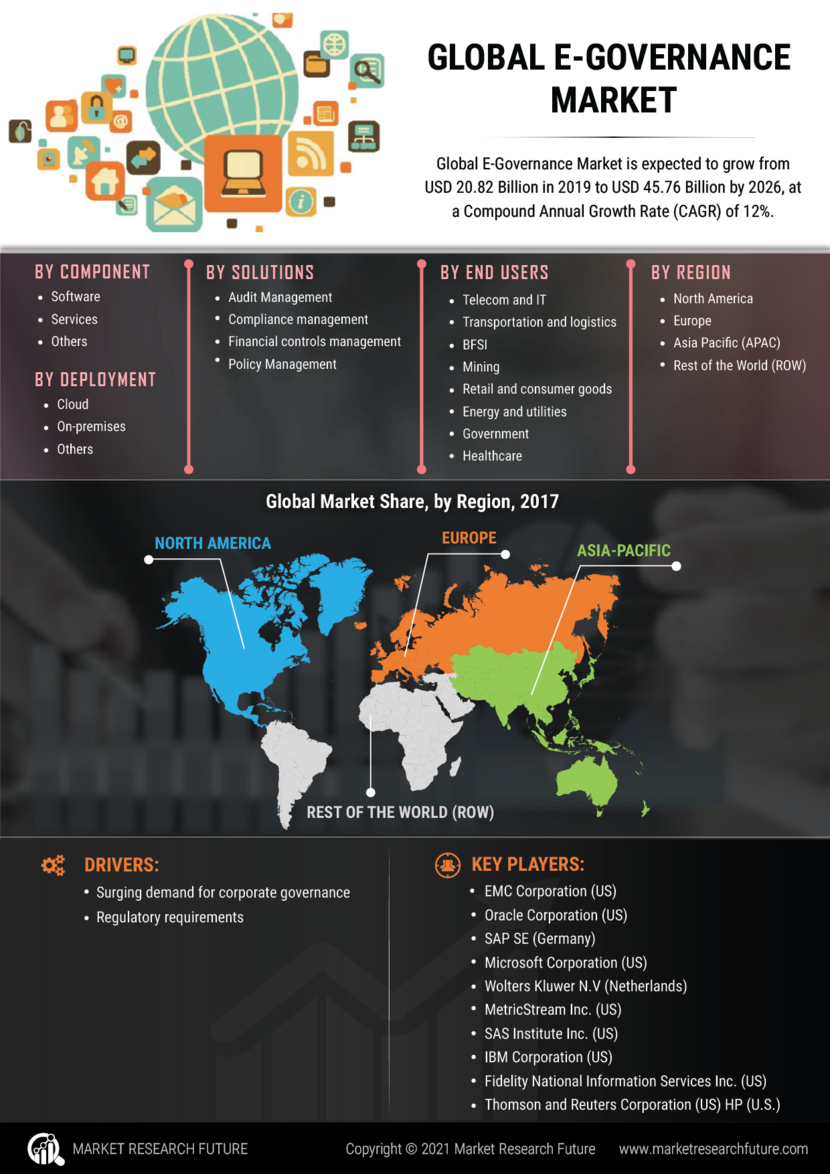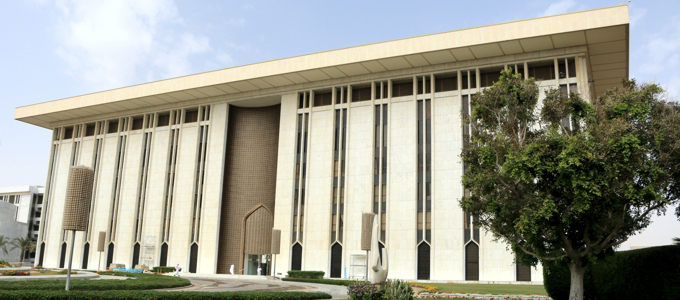According to a comprehensive research report by Market Research Future (MRFR), “E-Governance Market information by Solutions, by Components, by Deployment Type and Region – forecast to 2027” market valued 20.82 Billion USD in 2019 to 45.76 Billion USD by 2026, growing at 12% CAGR.
Market Scope:
The e-governance market is witnessing rapid developments. Rising demand for e-governance solutions to ensure associative perspectives across numerous governance and observance zones drive market growth. Besides, the rising uptake of e-governance in various commercial, BFSI, government, and healthcare sectors substantiates the market size.
Top managements accomplish and establish e-governance technologies as an amalgamation of procedures to establish the complaisance to cohere the company’s strategies, procedures, and superintendence. E-Governance offers a creative perspective to address collaborative governance, danger management, and concurrence issues.
Dominant Players on E-Governance market covered are:
- Oracle Corporation (US)
- EMC Corporation (US)
- Metric Stream Inc. (US)
- IBM Corporation (US)
- Microsoft Corporation (US)
- SAS Institute Inc. (US)
- Fidelity National Information Services Inc. (US)
- Thomson and Reuters Corporation (US)
- SAP SE (Germany)
- Wolters Kluwer NV (Netherlands)
Moreover, emerging requirements for corporate administration, bureaucratic prerequisites, and assistance push the market’s growth. Massive investments made into the development of e-governance solutions, influence market growth. Improved governance procedures are a key pillar leading to a variety of benefits for governments and organizations.
eGovernance Market Drivers

Authoritative & Political Support is a Key Growth Driver for E-Governance
E-Governance sales policies are an integral part of administrative reforms. Additionally, advances in automation and increasing uses of intelligent solutions influence the development of the market. Data security, good internet connection, privacy laws, and efficient information system result in fostering the e-governance market.
E-Governance business offers minimized operational cost and better access to services, improving knowledge management and coordination among governmental agencies.
Lack of Awareness Hinder Market Growth
The e-governance market is still in its nascent stage, which brings challenges such as privacy vulnerabilities like tampering of governmental systems, compromised security services, spoofing, language diversity, the threat to private information, repudiation, etc. Also, the lack of awareness about benefits and reluctance to adopt e-governance solutions restrain the market growth.
Segmentation of Market covered in the research:
The market is segmented into components, deployment types, end-users, and regions. The component segment is sub-segmented into services, software, and others. The sub-segment solution is bifurcated into compliance management, financial controls management, policy management, audit management, and others. The deployment type segment is bifurcated into Cloud, On-premises, and others.
The end-user segment is sub-segmented into energy & utilities, mining, BFSI, telecom & IT, retail & consumer goods, transportation & logistics, healthcare, government, and others. The region segment is sub-segmented into Europe, North America, Asia Pacific, the Middle East & Africa, and others.
Regional Analysis
North America leads the global e-governance market. Factors such as the rise in demand for efficient solutions due to changing data regulatory requirements and compliances and advances in technologies drive the regional market growth.
Besides, the strong presence of e-governance solution providers in the region impacts market revenues positively. With the maximum implementations of cloud solutions, Canada and the US contribute exponentially to the e-governance market in this region. Furthermore, the growing uptake of corporate governance and prominent IT infrastructure growth across the region increase market share.
COVID-19 Impact on the Global E-Governance Market
The COVID-19 outbreak has positively impacted the e-governance industry. The global pandemic swept during the end of 2019 and continued throughout 2020 and into 2021 brought forward many complexities for the governments worldwide, such as noncompliance with lockdown and work from home mandates. Many governments found that their Integrated Local Governance Management Systems (ILGMSs) are insufficient to handle future requirements.
In response, governments implemented e-governance solutions to digitize and automate their processes, including finance and accounting modules to allow residents to apply various events, such as birth, death, and marriage registrations online without turning up at the corporation office.
Besides, transformations in the IT & telecom sectors encouraged governments to transform digital processes, and the downward global economy propelled the market upend. Resultantly, the e-governance market witnessed a constant uptick amid coronavirus crises. Also, solution providers kept fostering R&D investments to develop new customized solutions and advance the existing ones.
Competitive Analysis
Highly competitive, the e-governance market appears fragmented due to the presence of several well-established players. Industry players incorporate strategies such as mergers & acquisitions, collaborations, expansion, and product/technology launch to gain a larger competitive share.
For instance, on August 05, 2021, The Federal Government (FG), Nigeria, announced signing an MoU with the Korean Government worth US$ 13 MN for the e-governance initiative. FG is planning to fully digitize its processes, particularly in the civil service and other government institutions, by 2026.
The initiative being implemented by the Korea International Cooperation Agency (KOICA) would support building foundations toward digital governance in Nigeria. Korea has achieved significant success in digital governance, and therefore its digital governance services are adopted as one of the models to support Nigeria’s e-Governance Masterplan.
About Market Research Future:
Market Research Future (MRFR) is a global market research company that takes pride in its services, offering a complete and accurate analysis regarding diverse markets and consumers worldwide. Market Research Future has the distinguished objective of providing the optimal quality research and granular research to clients. Our market research studies by products, services, technologies, applications, end users, and market players for global, regional, and country level market segments, enable our clients to see more, know more, and do more, which help answer your most important questions.






Comments